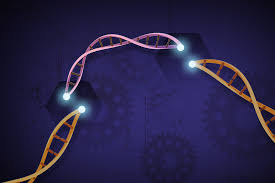Aggregated News

Around this time last November, Chinese scientist He Jiankui stunned the world when he revealed the birth of the first known gene-edited babies. Working in relative secrecy, he had used CRISPR to modify human embryos in the lab and then established pregnancies with those embryos. Twin girls with edited genomes were born as a result.
The scientific community’s condemnation of He was harsh and swift. He had edited the germline, making a heritable genetic change. There were safety questions about the effects on the twins, and he had not meant to fix a genetic defect or prevent disease. Instead, he tweaked a gene in an attempt to bestow an uncommon, protective genetic trait: resistance to HIV.
In the aftermath, leading scientists and ethicists published an open letter in the journal Nature calling for a temporary moratorium on human germline gene editing — that is, editing eggs, sperm, or embryos to make genetically modified children. But it’s been a year, and there is still no unified set of rules to dictate whether or how scientists should conduct this research. Some scientists...



